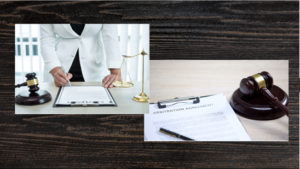Not every case ends up in a courtroom. Our firm always prepares each case as though we will need to be in court, but for the right facts. Alternative Dispute Resolutions (ADR) is a way that litigating parties can resolve a dispute before they go to trial. Each case is different, and what works for one case may not be the best option for another. We have listed below a couple different types of ADR that could be beneficial, depending on your case.
Mediations
Mediations can be part of the negotiation phase. Typically, both sides may voluntarily come together, after properly gathering information and analyzing the strengths and weaknesses of their case, and determine if they can reach a mutual agreement. A third party-often a retired judge or certified mediator- will be present to assist the parties in discussing settlement value. This is less formal than an arbitration and is not binding. During this time, no witnesses are called, and nobody has to testify under oath. At the end of the day, if they are unable to agree then both parties can go their separate ways and prepare to go to trial.
Arbitrations
Arbitrations are handled more like a courtroom setting and are more formal. There are usually specific procedures unique to the arbitration process that must be followed. It gives the chance for both parties to come together, present their findings, and testify under oath. Once all parties have presented their cases and witnesses, the arbitrator will decide the ruling of the case. The ruling is usually binding and something that both parties must accept and follow.
Settlement Conferences
In Virginia, our Supreme Court has established a Judicial Settlement Conference or “JSC” option for some cases. A JSC is a meeting that takes place between both parties and includes a neutral third party that is a retired judge designated by the Court in your case to assist the parties in discussing settlement. This is very similar to a mediation. Like a mediation, the neutral party does not make the decision, but tries to encourage the party to reach a mutual agreement. However, at the end of the day it is up to both parties to reach an agreement. Even if the case doesn’t reach a settlement, in some cases, they can still resolve certain issues at a settlement conference, so there will be less to deal with when the parties later go to trial.
For the right case or facts, the ADR process is a highly effective way for resolving cases in such a way that allows the parties to control their own outcome without relying on others to tell them how the case will end. Even if ADR doesn’t immediately resolve the case, it can also help bring the parties closer together, so that a settlement may be reached at a later date.

